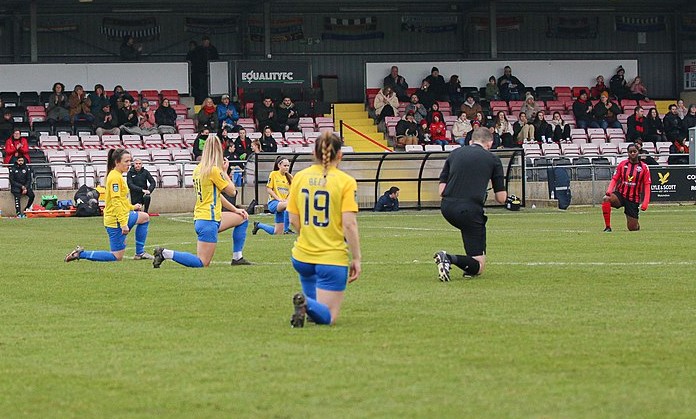
Politics has become a substitute for religion and ‘social justice warriors’ are today’s Puritans, a new BBC documentary claims.
Helen Lewis, who was raised Catholic but is now an atheist, has produced a new documentary for BBC Radio 4 in which she explores the thesis that contemporary social justice movements have the same characteristics that used to be typical of religion.
As she explains in an article for the Atlantic magazine, with the decline of organised religions, “we might expect that religious concepts—repentance, hellfire, heresy, apostasy—would have become less salient as a result. But that’s not the case. For some activists, politics has usurped the role that religion used to play as a source of meaning and purpose in our lives, and a way to find a community.”
She thinks that human being always long for shared values, for a sense of belonging and for meaning. Many young people might find all this in ‘social justice movements,’ which is to say, in left-wing or environmental activism, more than in churches, but there striking similarities between the new and old orthodoxies.
Taking the knee to fight racism, for instance, is a direct inheritance from religious celebrations. Announcing your pronouns is a ritual that “shows allegiance to a common belief, reassuring a group that everyone present shares the same values”, she says.
Lewis claims that social justice groups are not necessarily more inclusive or respectful of differences. They have inherited not only the positive elements but also the worst characteristics of religion, such as intolerance and prejudice.
“I know a lot of LGBTQ+ young people who say it’s harder to come out as Christian in an LGBT space than LGBT in a Christian space”, a cleric of the United Reformed Church, one of the most liberal Christian denominations, told Lewis. The minister identifies as ‘gender non-binary’.
Helen Lewis notes that “treating politics like a religion also makes it more emotionally volatile, more tribal (because differences of opinion become matters of good and evil) and more prone to outbreaks of moralizing and piety.”
A fundamentalist fervour pervades the public presence of social justice warriors, she claims. Those who do not conform to the new orthodoxy are ‘burnt’ as heretics on social media or cancelled from public life.
Lewis is correct, even if her thesis is not particularly original. The same was often observed about the secular ideologies of the 20th century by philosophers like Eric Voegelin. It is true that human beings are always searching for truth and meaning. We are also ritualistic; our values are embodied in collective symbolic actions and recurring celebrations.
We have a deep desire for something that transcends our daily lives and politics can become an attempt to find salvation in this world, rather than in the next.
The BBC documentary proves that human nature doesn’t really change: religion is an essential part of what we human beings are, even when if it can find new forms.


